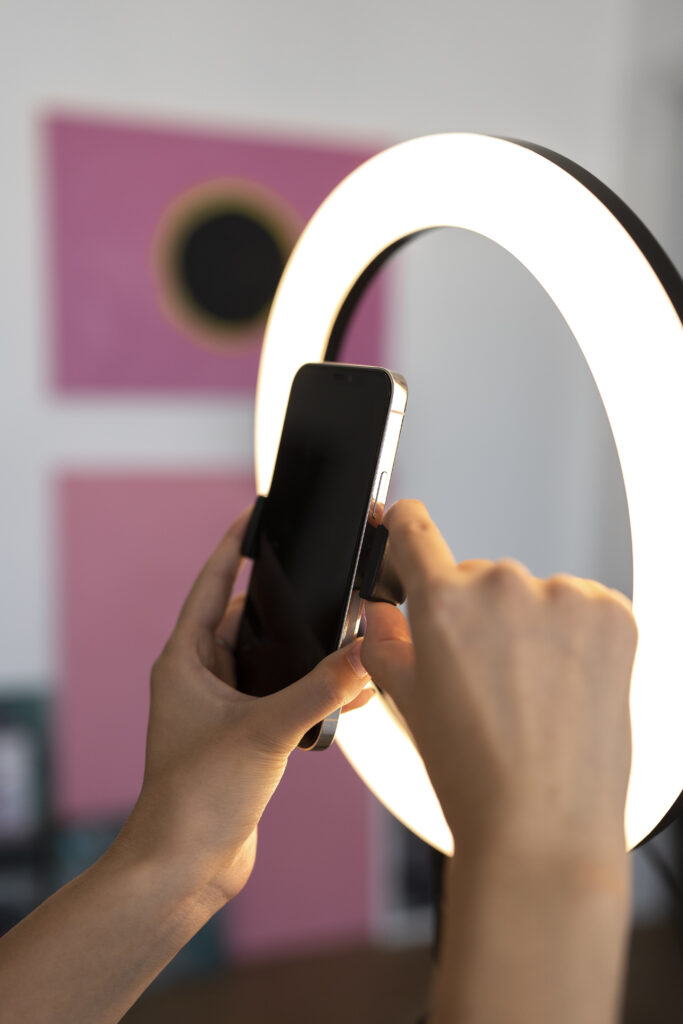For years, app marketers have focused on App Store Optimization (ASO), paid user acquisition, and keyword dominance to grow their mobile apps. But in 2025, a surprising truth has emerged:
TikTok is the new app store.
And we’re not just saying that. We tested it.
We shifted our acquisition strategy from App Store Search to TikTok—and ended up with over 100,000 installs in just 6 weeks.
No App Store keyword targeting. No paid search campaigns.
Just short-form video and smart storytelling.
Here’s exactly how we did it, and how you can do it too.
Why TikTok Is the New Discovery Engine for Apps
In 2025, users don’t “search” for apps the way they used to.
They stumble across them, influenced by what’s trending in their feed, what creators are using, or what solves a problem they didn’t know they had.
And TikTok, with over 1.7 billion active users, has become the #1 place for organic product discovery, especially for:
Lifestyle and wellness apps
Financial tools and side hustle platforms
Productivity, fitness, dating, and gamified apps
Gen Z-targeted utilities and self-improvement tools
A Forrester report in late 2024 even showed that 31% of users aged 18–34 discover new apps on TikTok before the App Store. That number is climbing.
Our Results at a Glance
| Metric | Result |
|---|---|
| Campaign Duration | 6 weeks |
| Total Installs | 104,328 |
| Average Cost per Install | $0.73 (mostly organic) |
| Videos Published | 23 (UGC + brand voice) |
| Top Performing Format | POV + Day-in-the-Life |
Step 1: We Replaced Landing Pages with Storytelling
Forget static landing pages or dull explainer videos.
We built short, emotional video stories around the problem our app solves, not the app itself.What worked best:
POV videos: “Here’s how I stay productive with ADHD”
Transformation stories: Before/after videos showing how someone improved their life
Relatable humor: “Me trying to budget vs. me with this app”
Each video had:
Native TikTok editing (no overpolished content)
Text overlays that spoke directly to pain points
A clear CTA: “Link in bio to try it free”
We didn’t talk about features, we talked about outcomes.
Step 2: We Used Nano-Influencers with Loyal Followings
Instead of chasing big names, we partnered with nano- and micro-influencers (under 50K followers) across mental health, finance, and productivity spaces.
Why?
They felt authentic
They had higher engagement rates (5–8%)
They were open to revenue share or gifted partnerships
Each creator told the story in their own words, and the content felt native to their audience.
We gave them loose guidelines:
Hook in the first 2 seconds
Show how the app fits into their actual day
No scripts, just problems and outcomes
This creator-driven content gave us 80% of our installs.
Step 3: We Let the TikTok Algorithm Do the Heavy Lifting
We didn’t use hashtags like #ad or #downloadnow.
Instead, we tagged videos with interest-based hashtags like:
#ProductivityHacks
#SideHustleTips
#SelfImprovementApps
#ADHDroutine
#BudgetingTools
We also posted at high-engagement times (8–10 AM and 7–9 PM) and reused high-performing clips in new formats (duets, voiceovers, re-edits).
The TikTok algorithm picked up what worked and ran with it, organically.
Bonus Tip: Drive Traffic Through Link in Bio, Not App Store Search
Instead of hoping users searched for our app after seeing the video, we used:
Linktree to route traffic to the right platform
Custom URLs with UTM tracking
Bio hooks like: “Try it free → link in bio”
This created a conversion funnel entirely outside the App Store, with higher intent and more control over the experience.
Rethinking the Funnel: TikTok → Link in Bio → Install
Here’s the difference:
| Traditional Funnel | TikTok Funnel |
|---|---|
| Ad → App Store → Hope they convert | TikTok Video → Bio Link → Targeted Landing Page → Install |
We saw 30–50% higher install-to-retention rates from TikTok traffic compared to App Store search, likely because users saw the “why” before they ever saw the download button.
What You Can Learn From This
TikTok is not a platform, it’s a discovery engine.
Focus on one irresistible feature, and show it in action.
Build native, unscripted content that feels authentic.
Use creators as amplifiers, not just influencers.
Track everything, and double down on what works.
Final Thoughts
The way people discover apps is changing. TikTok has become the front door to the App Store. If you want users to download your app in 2025, you don’t just need to rank, you need to be seen, shared, and saved in someone’s feed.
If you’re still putting all your growth effort into ASO or paid ads, you’re leaving huge opportunity on the table.
Want to be where your users already are?
Start thinking of TikTok as your new launchpad.
